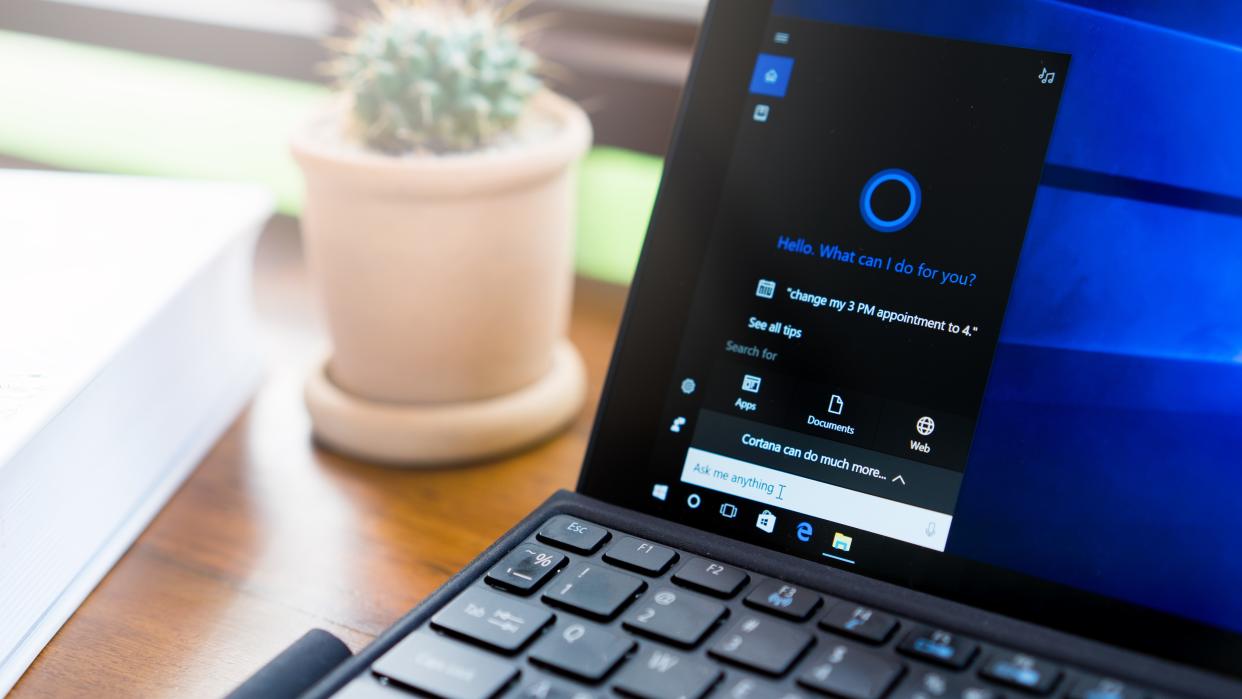It’s official, Microsoft is killing Cortana in favor of AI

Do you remember the last time you actually used Microsoft’s Cortana virtual assistant? Despite rolling out back in 2014 on Windows Phone, and later on Windows 10, the voice assistant never really took off. But while some companies may be using AI to enhance their virtual assistant, Microsoft is using it as an excuse to hammer the final nails into Cortana’s proverbial coffin.
This actually isn’t a huge surprise. Cortana never really managed to make a name for itself compared to the likes of Alexa, Siri or Google Assistant, to the point where Microsoft hasn’t added any new features to its assistant for the past two years.
So really Microsoft is just making it official, and the latest Cortana update is killing off the assistant’s standalone app in Windows 11.
According to Microsoft, this isn’t a true ending to Cortana. The company’s latest blog post (via Windows Latest) claims that it's only killing the standalone Cortana app in Windows 11 — but Cortana will live on in services like Outlook and Microsoft Teams for the time being. I wouldn’t expect that to last long, though, since Microsoft is already going all in on alternative options.
The blog post details a new Voice Access feature for Windows 11, which lets you control your PC using voice commands. Apparently this works offline and uses “advanced speech recognition” to understand what you actually want. So if you actually like controlling your PC with voice commands, be it for personal preference or from an accessibility standpoint, the death of Cortana shouldn’t be a major hurdle.
Anyone who’s paid any attention to Microsoft recently knows it dove head first into the current AI trend, and it seems that its new AI-centric tools are going to be the main replacement for Cortana. Particularly noteworthy is the new AI-powered Bing search which Microsoft describes as letting you “ask complex questions and get concise answers from reliable sources on the web”.
There’s also Windows Co-Pilot, which was released in preview back in June, which promises to provide “centralized AI assistance”. This tool is designed to link to Bing Chat and a variety of first- and third-party plugins to “focus on bringing your ideas to life, completing complex projects and collaborating instead of spending energy finding, launching and working across multiple applications”. You can read more about how that works in our guide to Windows Co-Pilot.
There’s also Microsoft 365 Copilot, which pulls in all your Microsoft 365 data to “help you create, edit, share content, and more”.
So while Cortana may be on its last legs, it sounds like Microsoft isn’t going to leave Windows 11 users without features they may have gotten used to having access to. It just so happens that those tools won’t be named after the AI from Halo, or voiced by Jen Taylor. Let’s just hope that these ones actually appeal to people.
